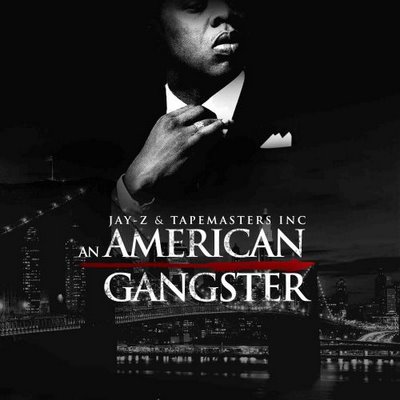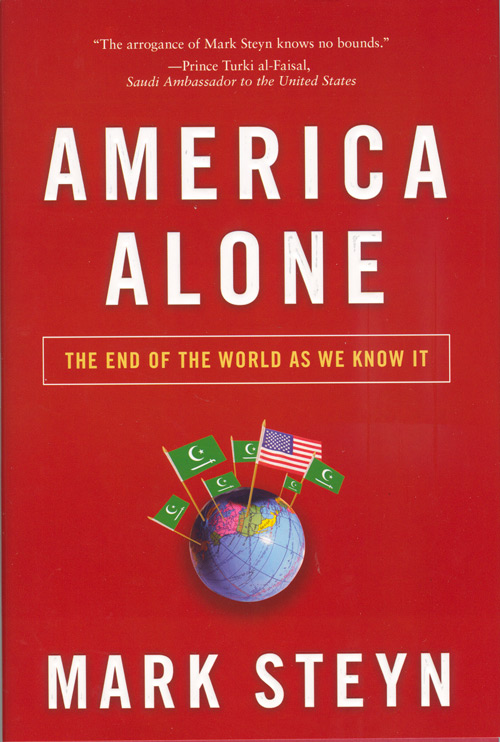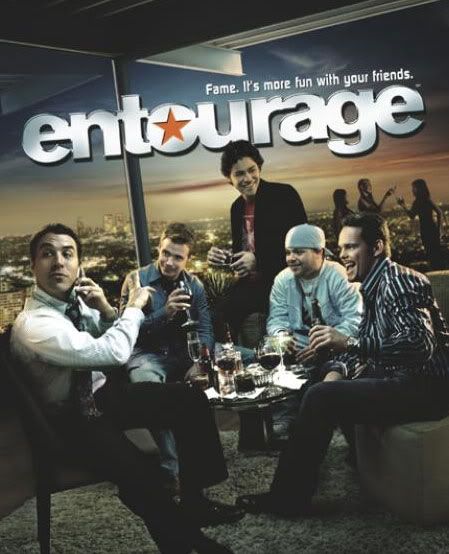Friday, December 07, 2007
Be An Election Gangsta: What Politicos Can Learn From Hip-Hop - Part I
I am fully and completely aware that many CH readers are not exactly fans of hip-hop/rap music. But I want you to set aside your views on the music itself and take a moment to think about what this groundbreaking music genre can teach you about running a campaign or operating in the political realm, as many of us do.
I have assembled 4 "case studies" that offer strategies on how to deal with situations we commonly face as political activists. I'm not trying to suggest that the rap music industry is the only instance where these types of tactics have been used; however, my overall point here that you never know where you will get your inspiration from. Many of the "cutting edge" techniques we have seen deployed in Canadian and US elections had their origins in the entertainment media, business or even military strategy.
You wouldn't think to look at hip-hop as a sourcebook for political campaigning, but these few examples might change your mind. Stick with me here, and you might learn something. I know I did.
CASE # 1: RESHAPING YOUR BRAND/IMAGE: JAY-Z'S "AMERICAN GANGSTER"
For those that don't know, Jay-Z is a former drug dealer turned multimillionaire rapper and hip-hop entrepreneur. His first album was released in 1996 under his own label, Roc-a-Fella Records, and he has consistently been referred to as the "Best Rapper Alive" by the media and his peers. He was known for gritty subject matter, razor-sharp wordplay and consistently delivering solid albums.
However, in 2004, Jay-Z announced he would retire from rap and become President and CEO of landmark record label Def Jam, originally home to the Beastie Boys and LL Cool J. Only a year into his tenure as label president, Jay-Z returned to the studio and released "Kingdom Come." Far from talking about the life of a reformed drug dealer or the hustle of the streets, the subject matter of this album was about yachts, trips to the Mediterranean and how "30 was the new 20."
The response from the rap community was harsh and brutal. Fans who were used to the cool hustler persona "Jay-Hova" had created for himself were alienated by this new artist rapping about subjects they could not relate to, but Jay-Z lived every day: a world of luxury penthouses and Lear jets.
Here's a great video ("Show Me What You Got") that illustrates exactly where he was at, image wise:
As someone who always valued his street credibility and reputation for authenticity, Jay-Z feared her would be remembered as someone who became rich and lost touch with his past. So Jay-Z came up with a plan: he would reestablish his street credentials by going back to his roots. All he needed was a vehicle.
That vehicle came in the form of the film "American Gangster", based on the life of real-life Harlem gangster Frank Lucas and stars Oscar winners Denzel Washington and Russell Crowe and is directed by Ridley Scott.
As part of discussions into whether he would contribute to the accompanying soundtrack, Jay-Z got an advanced screening of the film, which brought back memories of his drug dealing past and came up with a better idea: he would release a companion album of the same name and would take fans back to his hustler roots and restore his credibility with his core fans.
But he needed to get the attention of those fans first. He needed to signal to the entertainment media, music industry officials and the public at large that he was back to original form. He also needed to build a buzz.
So, instead of a radio-friendly single, he decided to send a strong signal to his fans that the "old" Jay-Z was back. So he released a very simplified, gritty single: "Blue Magic." And before the release of the single, he and his record company released an absolutely brilliant "trailer" which clearly laid out the direction of his new album:
In 3 minutes, Jay-Z sent a strong signal to everyone that he was back to his hustler roots. The Internet was abuzz with the trailer and his new single was being played heavily across the country. Not to mention the fact that he was able to build on the strong, strong promotion of the movie of the same name. He was able to make the release of his new album an event.
Unless your candidate is planning on releasing an album, what can we learn from this?
Jay-Z understood the need to control his image. He also knew that his image after the "Kingdom Come" album release would be the one fans were left with: rich, corporate executive. That may be fine for most of us, but in a genre that respects street credibility and authenticity, that was not acceptable to him.
So he decided to hit the reset button and start from scratch. He did that by using strong visuals in a limited manner to generate interest. In fact, as you may have noticed, Jay does not even appear in the initial "Blue Magic" trailer. He used images and ideas that were directly linked to the themes he used in his new album and re-crafted image: the grimy hustle, the hard street life.
Additionally, because of the impending release of "American Gangster" the film, Jay-Z recognized that all the talk in Hollywood and New York would be about the gangster hustle and the brutal reality of street life. He used that event to further solidify the overall image he wanted to transmit to the public.
So, in summary:
I have assembled 4 "case studies" that offer strategies on how to deal with situations we commonly face as political activists. I'm not trying to suggest that the rap music industry is the only instance where these types of tactics have been used; however, my overall point here that you never know where you will get your inspiration from. Many of the "cutting edge" techniques we have seen deployed in Canadian and US elections had their origins in the entertainment media, business or even military strategy.
You wouldn't think to look at hip-hop as a sourcebook for political campaigning, but these few examples might change your mind. Stick with me here, and you might learn something. I know I did.
CASE # 1: RESHAPING YOUR BRAND/IMAGE: JAY-Z'S "AMERICAN GANGSTER"
For those that don't know, Jay-Z is a former drug dealer turned multimillionaire rapper and hip-hop entrepreneur. His first album was released in 1996 under his own label, Roc-a-Fella Records, and he has consistently been referred to as the "Best Rapper Alive" by the media and his peers. He was known for gritty subject matter, razor-sharp wordplay and consistently delivering solid albums.
However, in 2004, Jay-Z announced he would retire from rap and become President and CEO of landmark record label Def Jam, originally home to the Beastie Boys and LL Cool J. Only a year into his tenure as label president, Jay-Z returned to the studio and released "Kingdom Come." Far from talking about the life of a reformed drug dealer or the hustle of the streets, the subject matter of this album was about yachts, trips to the Mediterranean and how "30 was the new 20."
The response from the rap community was harsh and brutal. Fans who were used to the cool hustler persona "Jay-Hova" had created for himself were alienated by this new artist rapping about subjects they could not relate to, but Jay-Z lived every day: a world of luxury penthouses and Lear jets.
Here's a great video ("Show Me What You Got") that illustrates exactly where he was at, image wise:
As someone who always valued his street credibility and reputation for authenticity, Jay-Z feared her would be remembered as someone who became rich and lost touch with his past. So Jay-Z came up with a plan: he would reestablish his street credentials by going back to his roots. All he needed was a vehicle.
That vehicle came in the form of the film "American Gangster", based on the life of real-life Harlem gangster Frank Lucas and stars Oscar winners Denzel Washington and Russell Crowe and is directed by Ridley Scott.
As part of discussions into whether he would contribute to the accompanying soundtrack, Jay-Z got an advanced screening of the film, which brought back memories of his drug dealing past and came up with a better idea: he would release a companion album of the same name and would take fans back to his hustler roots and restore his credibility with his core fans.
But he needed to get the attention of those fans first. He needed to signal to the entertainment media, music industry officials and the public at large that he was back to original form. He also needed to build a buzz.
So, instead of a radio-friendly single, he decided to send a strong signal to his fans that the "old" Jay-Z was back. So he released a very simplified, gritty single: "Blue Magic." And before the release of the single, he and his record company released an absolutely brilliant "trailer" which clearly laid out the direction of his new album:
In 3 minutes, Jay-Z sent a strong signal to everyone that he was back to his hustler roots. The Internet was abuzz with the trailer and his new single was being played heavily across the country. Not to mention the fact that he was able to build on the strong, strong promotion of the movie of the same name. He was able to make the release of his new album an event.
Unless your candidate is planning on releasing an album, what can we learn from this?
Jay-Z understood the need to control his image. He also knew that his image after the "Kingdom Come" album release would be the one fans were left with: rich, corporate executive. That may be fine for most of us, but in a genre that respects street credibility and authenticity, that was not acceptable to him.
So he decided to hit the reset button and start from scratch. He did that by using strong visuals in a limited manner to generate interest. In fact, as you may have noticed, Jay does not even appear in the initial "Blue Magic" trailer. He used images and ideas that were directly linked to the themes he used in his new album and re-crafted image: the grimy hustle, the hard street life.
Additionally, because of the impending release of "American Gangster" the film, Jay-Z recognized that all the talk in Hollywood and New York would be about the gangster hustle and the brutal reality of street life. He used that event to further solidify the overall image he wanted to transmit to the public.
So, in summary:
- Understand the core ideals and images associated with you and your candidate (are they a taxfighter? A social activist? A successful businessman? A policy wonk?) in the media and amongst the public;
- If you are looking to re-brand your candidate or yourself, sometimes less is more. A strong single narrative is better than a massive barrage;
- Look for an event, cause of organization you can successful piggyback your candidate and solidify his/her image by tying it to a vehicle that has a similar brand and a high profile; and finally,
- Cap off your re-branding efforts by a seminal event to re-announce your new direction.
NEXT: Rapid response with 50 Cent and his rivals
Subscribe to Comments [Atom]
 THE CONSERVATIVE HIPSTERS
THE CONSERVATIVE HIPSTERS












